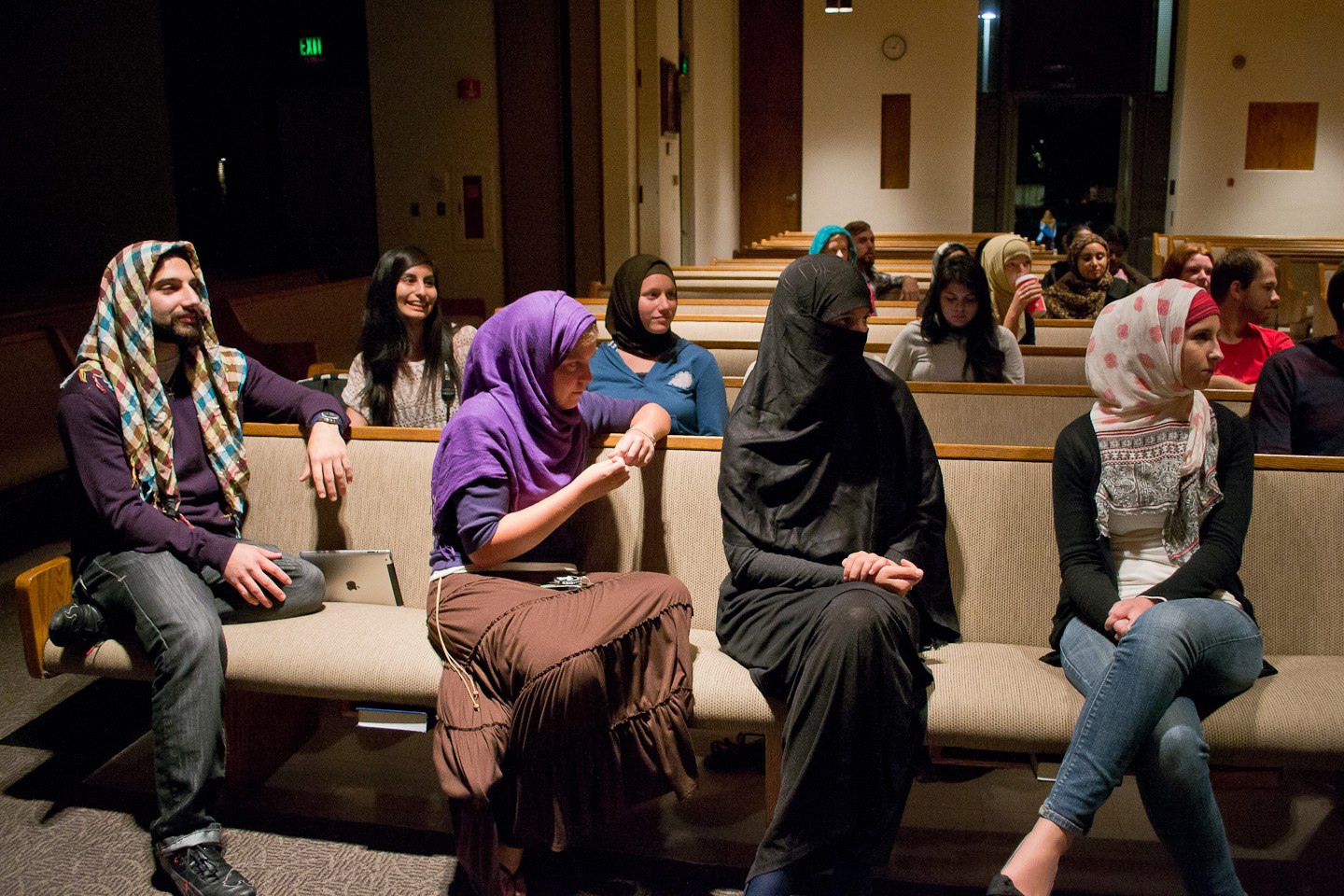
According to a February article on Southern California Public Radio’s website, about 1 million Muslims live in Southern California. This is in comparison to the number of 6 million nationwide. As such, Biola’s Muslim Ministry is centered on raising awareness of that population as well as forming friendships and relationships with Muslims in Southern California.
Already this year, Muslim Ministry has worked to promote their goal. In early October, a group of 50 female students wore headscarves to represent the significant ratio between Muslims in the area and those who are not. Christine Kazar, a sophomore intercultural studies major, explained how the technique raised awareness visually by putting a stereotype on them that is only partly true.
Kazar continued to explain that not every Muslim wears a headscarf and not everyone that wears one is a Muslim. She also noted that Evangelical Christians are more likely than non-Christians to hold hostile opinions towards the Islamic community. the ministry desires to break down this prejudice and release their hatred towards Muslims so Christians will be more open to communication.
Learning through experience
Muslim Ministry also raises awareness and fosters relationships by visiting a mosque in Garden Grove to sit in and witness their services. Their last visit was Nov. 9.
Emily Sudman, a sophomore intercultural studies major, explained the method behind the visitations.
“In our meetings, we teach Biola students the different beliefs Muslims hold. In mosques, they can experience it for themselves,” Sudman said. “We can teach whatever we want, but if they go and see it for themselves it makes it more meaningful. Seeing more of what they believe and hearing from their words means more than just hearing about it in a classroom.”
Muslim worship services are very different than those held by Western Christians. The men are in the main room downstairs, while the women watch upstairs from the balcony. The service is spoken mainly in English, but has some Arabic words as well. Sudman compared it to a church service spoken partly in Latin.
"It can make you angry and zealous for their souls."
However, some, like Kazar, find visiting the mosque spiritually draining.
“It is going into a place of darkness,” she said. “Seeing those people, knowing that all this glory is going to a false god and not the one true God is heartbreaking. It can make you angry and zealous for their souls.”
Sudman agrees, pointing out how their understanding of God’s holiness and man’s humanity is sad when seeing their reverence for the wrong god.
Viewing the service is not the only activity they do at the mosque. They also get to speak to an imam, the religious leader. The mosque’s particular imam has spoken at Biola and has spoken with Muslim Ministry a few times before. Ministry leader Shoh Ueno, a senior anthropology major, views speaking with him as the highlight of his visit.
Building bridges to represent Christ
“I love that we’re able to represent Christ with him,” Ueno said. “We don’t go there to explicitly preach the gospel because that’s poor form. The whole reason why we’re there is so that we can learn to love Muslims better and build bridges with them.” Ueno noted how the respectful and caring questions and dialogue communicate the love of Christ.
Ueno also commented that their visits to the mosque and willingness to engage in conversation give them credibility.
“Who wants to hear about what some ignorant Christian has to say about Muslims when they’ve never spoken with one, let alone have gone to a mosque before?” he asked. “It gives us more insight and common ground to start talking about things with them.”







